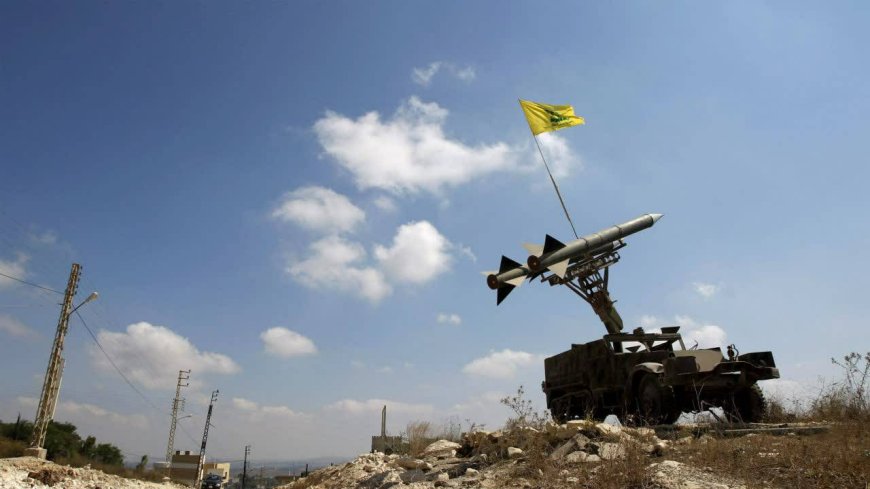Israel's Vulnerability Exposed: How Rocket Attacks from Lebanon Shake Israeli Confidence
Israel's Vulnerability Exposed: How Rocket Attacks from Lebanon Shake Israeli Confidence

In recent months, the northern borders of occupied Palestine have become a hotbed of escalating tensions between the Zionist regime and Lebanon's Hezbollah. This perilous situation has been characterized by a series of significant events, including massive rocket attacks from southern Lebanon into the north of the occupied territories by Palestinian resistance groups, the infiltration of resistance forces into the occupied territories, the explosive incident at the Magdo intersection, the incursion of Hezbollah forces into occupied Palestine, and the establishment of a military post within Palestinian territory.
These mounting tensions cannot be understood in isolation from the policies and actions of Benjamin Netanyahu's right-wing administration. The government's uncompromising stance against Palestinians, recurrent attacks on the Al-Aqsa Mosque, and military operations in the West Bank have provoked strong reactions from resistance groups and elicited warnings from Lebanon's Hezbollah. Conversely, Tel Aviv alleges that the rise in tension in the West Bank is attributable to the support provided by Hezbollah and Iran to Palestinian resistance, thereby creating a new front against Israel.
Israeli analysts posit that the internal political rifts in the occupied territories over the past few months, stemming from judicial reforms and the refusal of army reserve forces to serve, have led Hezbollah's Seyed Hassan Nasrallah to deduce that Israel is grappling with internal issues and lacks the capacity for military action at present. Consequently, Hezbollah's recent actions along the northern border have severely undermined Israel's deterrence, necessitating a military response to restore the balance.
As tensions continue to mount between the Zionist regime and Lebanon's Hezbollah, particularly along the northern borders, a critical question emerges: Will Israel initiate action against Hezbollah on its northern borders? A careful examination of the statements and policies espoused by military and political authorities within Israel reveals a prevailing reluctance to engage in conflict with Hezbollah. This reticence arises from a sober recognition that the consequences of such a war, regardless of the ultimate outcome, would prove devastating. Hezbollah has unequivocally warned that it possesses the capability to catapult Israel back to the Stone Age.
This reality is vividly reflected in the Zionist regime's response to rocket attacks originating from southern Lebanon and targeting the north of the occupied territories. Contrary to expectations of a proportional response, the regime's military executed limited and cautious strikes on positions unrelated to Hezbollah in southern Lebanon. According to a report by Axios, Israeli ministers have concluded that waging war against Hezbollah in Lebanon would yield no discernible benefits, as it carries the looming threat of potentially escalating into a full-blown regional conflict. Moreover, Israel is acutely aware of its vulnerability to Hezbollah's formidable rocket arsenal, which far surpasses the capabilities it possessed during the Second Lebanon War.
Furthermore, the Zionist regime harbors deep apprehensions regarding the potential involvement of other resistance-oriented organizations in the conflict. Authorities fear that a confrontation with Hezbollah in Lebanon could rapidly spiral into a large-scale regional conflagration, drawing in Palestinian resistance forces from Gaza and the West Bank, as well as resistance forces from Syria, Iraq, and Yemen. The limited rocket attacks witnessed from southern Lebanon and Gaza have already demonstrated to the Israeli leadership that a regional conflict would deal a significant blow to their prospects for victory.
The current state of the Israeli army, marred by internal protests within the occupied territories, serves as an additional deterrent to taking decisive action against Hezbollah in Lebanon. The regime's military units have experienced a palpable erosion of cohesion due to widespread protests against the Netanyahu government's proposed judicial reforms. A substantial number of reserve forces have publicly expressed their unwillingness to participate in military programs.
In summary, given its current vulnerabilities, the Zionist regime has exhibited a distinct lack of intent to provoke Hezbollah and initiate a large-scale conflict. Instead, the regime endeavors to maintain a safe distance from the precipice of conflict by refraining from actions that could further exacerbate tensions with Lebanon's Hezbollah. This delicate balancing act underscores the regime's astute recognition of the potential consequences at stake and its unwavering commitment to preserving stability and security in the region.













































